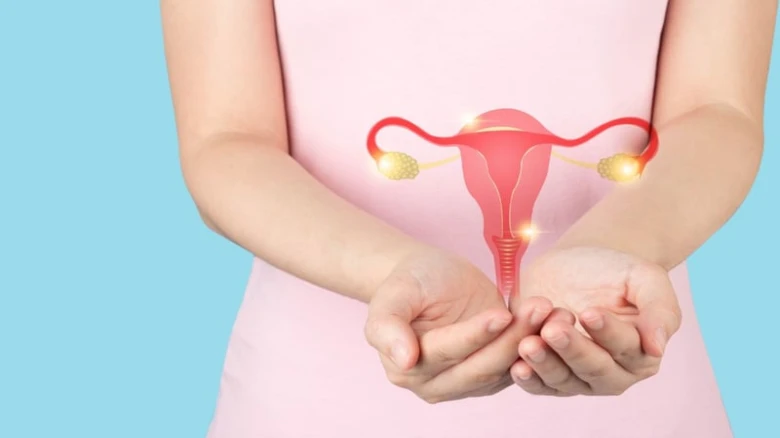These symptoms are often indicative of underlying hormonal imbalances that complicate the health and wellness journey of affected women...
Digital Desk: Polycystic ovary syndrome (PCOS) is a prevalent hormonal disorder affecting women of reproductive age. According to the World Health Organization (WHO), PCOS impacts approximately 8-13% of women in this demographic, with a startling 70% of cases going undiagnosed. This condition manifests through a variety of symptoms, including irregular periods, acne, excessive facial or body hair, weight gain, and more. These symptoms are often indicative of underlying hormonal imbalances that complicate the health and wellness journey of affected women, particularly during weight loss.
Belly Fat
One of the significant challenges women with PCOS face is the accumulation of belly fat, commonly referred to as "PCOS belly." Unlike healthy women who tend to store fat in areas like the hips, thighs, or breasts, women with PCOS often see fat accumulation around the waist and internal organs. This pattern of fat storage is driven by hormonal imbalances, including insulin resistance and inflammation, which are hallmarks of PCOS. The presence of belly fat not only affects physical appearance but also elevates the risk of developing heart disease and diabetes.
Sugar Cravings
Intense carbohydrate cravings are another common issue for women with PCOS, primarily due to insulin resistance. This condition makes it challenging to regulate blood sugar levels, leading to overeating and cravings for sugary and processed foods. The struggle with sugar cravings is more pronounced in obese women with PCOS compared to their leaner counterparts. To combat this, it is advisable to opt for whole grains and ensure adequate protein intake to stabilize blood sugar levels. Avoiding processed and sugary foods can also help reduce these cravings.
Hair Loss
Hair loss is a distressing symptom of PCOS caused by elevated levels of androgenic hormones, particularly testosterone. This hormonal imbalance leads to thinning, brittle hair that breaks easily. The excess testosterone exacerbates hair loss, making it crucial for women with PCOS to consult healthcare experts for managing hair-related concerns. Treatments can include hormonal therapies and other interventions to address the underlying imbalance.
Irregular Periods
Irregular or missed periods are key indicators of PCOS, stemming from disruptions in ovarian function that prevent ovulation. Diagnosis of PCOS often occurs 2-3 years after a girl’s first period, as menstrual cycles take time to stabilize. Insulin resistance contributes to increased testosterone production in the ovaries, affecting both ovulation and the regularity of periods. Regular monitoring and medical consultations are essential to manage this aspect of PCOS.
Fatigue
While PCOS itself doesn't directly cause fatigue, it is often linked to various symptoms and conditions that contribute to tiredness. Obesity, hormonal imbalances, and heavy periods associated with PCOS can all lead to fatigue. Additionally, changes in hormones like cortisol and thyroid hormones, which control energy levels, significantly impact fatigue levels. Addressing these factors through lifestyle changes and medical intervention can help alleviate fatigue.
PCOS is a complex condition with a range of symptoms that affect women's health and quality of life. Understanding and addressing the signs of hormonal imbalances during the weight loss journey is crucial for managing PCOS effectively. Regular consultations with healthcare providers and adopting a balanced diet and lifestyle can help mitigate these challenges and improve overall well-being.








Leave A Comment